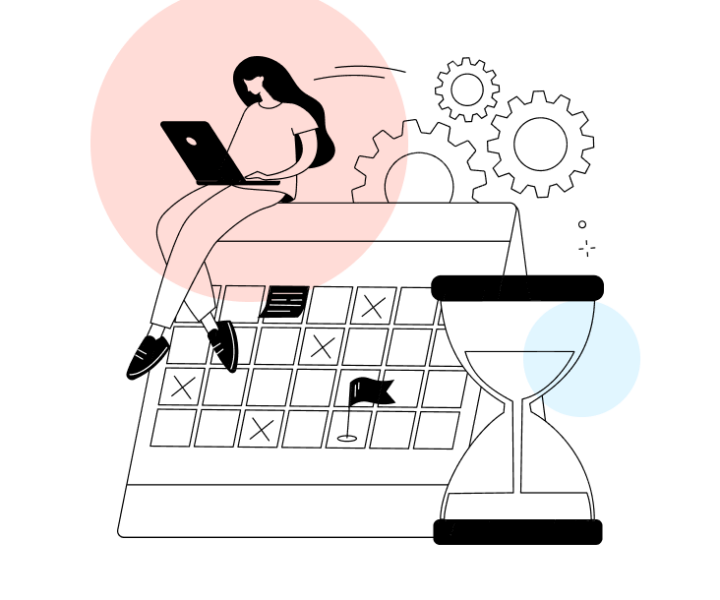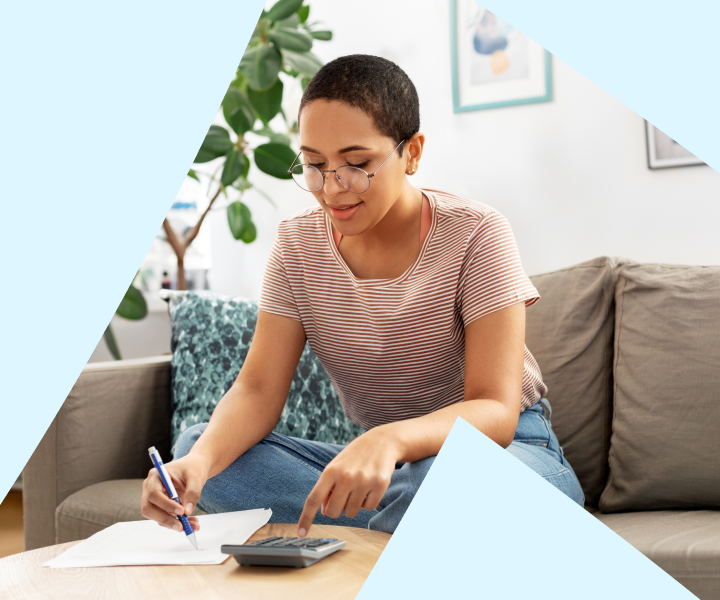Get all the expert help you need for only $20 when you’re 25 or younger with TurboTax
I Finished Filing My Taxes. What Now?
TurboTax Canada
May 17, 2024 | 1 Min Read
Updated for tax year 2025

If you’re reading this, it means you’ve already filed your taxes and may even be expecting a tax refund. Well played! The tax ball is now in the CRA’s court—at least for the moment. Here’s everything you need to know about what happens next.
Key Takeaways
- Depending on how you filed, you can expect your tax refund in 2 to 8 weeks.
- You can correct a mistake on your tax return by making an adjustment to the original version.
- The CRA expects you to keep your tax returns and supporting documents for six years.
When will I get my tax refund?
How you file affects how fast you get your refund.
If you filed on time or early using the CRA’s online service, NETFILE, your refund should arrive within 2 weeks. If you filed by mail, it could take up to 8 weeks. A few notable exceptions:
- If you live outside Canada and file as a nonresident, your refund may take up to 16 weeks.
- If the CRA selects your tax return for a review or audit, this will also create a delay.
TIP: To maximize the odds of receiving your refund as fast as humanly possible, set up direct deposit.
What should I do with my tax refund?
Who doesn’t love a tax refund? While the urge to splurge may be strong, there are all kinds of ways to make your windfall work for you and pay dividends to your future self.
From taking a restorative vacation to launching a new business, here’s our list of the 7 Smart Ways to Spend Your Tax Refund.
When will I receive a Notice of Assessment (NOA)?
If you filed your return online, expect to receive your NOA via CRA Online Mail in about 2 weeks. If you paper-filed, your NOA should arrive by mail in about 8 weeks.
Now that you’ve filed your tax return, you’ll want to keep an eye out for your Notice of Assessment (NOA). The NOA is the CRA’s way of saying your return has been received and reviewed. It summarizes your income and the credits and deductions you claim. Importantly, the NOA also reveals the amount of your tax refund or what you owe (if anything). For express NOA consider utilizing TurboTax Full Service.
Can I amend my tax return after filing?
Just as you’ve crossed ‘TAXES!!!’ off your to-do list, an investment slip shows up in the mail or you realize you forgot to claim an RRSP contribution. Don’t be discouraged. It happens, and it’s no big deal. All you have to do is make an adjustment to the original return.
Although you’re probably anxious to make the fix ASAP, it’s best to wait until you receive your NOA before correcting the original. This keeps things cleaner on the CRA’s end. Not to mention, the CRA has a tonne of your information on file, so it’s quite possible they’ll catch any mistakes or omissions for you. If this happens, they’ll adjust your return automatically, the change will appear on your NOA, and you won’t have to lift a finger.
If you’ve made an error the CRA can’t know about—such as forgetting to report income from a side hustle—you can file an adjustment request online or by mail as soon as your NOA arrives.
TIP: As the CRA accepts only one refile a year, ensure to have every detail updated accurately before attempting to refile.
What if I have a balance owing?
If your NOA doesn’t show a balance of ‘0’, try to pay off what you owe promptly so the CRA has no reason to hold back payment on future tax refunds or benefits such as the GST/HST credit. The easiest way to pay is through your online banking service, but the CRA offers all sorts of payment options.
If you can’t afford to pay off your balance in one fell swoop, be sure to let the CRA know ASAP. They won’t bite. But they’ll work with you to review your file and figure out a way forward.
While there’s really no way around paying off tax debt, the CRA may let you postpone payment until your financial situation improves. Either way, interest and penalties for late filing still apply.
Can I make instalment payments?
If you’re working a full-time job, instalment payments aren’t something you need to worry about because taxes are automatically deducted by your employer. If, however, you’re earning income through channels like self-employment, investments or rental properties, you may be expected to make quarterly tax instalment payments toward next year’s tax bill.
The idea of paying taxes on income you haven’t officially earned may not fill you with glee, but it beats getting slammed with one massive tax bill at the end of the year.
What if I receive a letter from the government?
If you get a letter from the CRA saying your tax return is being reviewed, don’t panic. A review isn’t a tax audit. In most cases, it’s simply a routine check to ensure the information you provided on your return is correct. Typically, you’ll be asked to provide information, receipts or documents to support a claim or deduction you made on your tax return. That’s it! The faster you respond and provide the requested information, the faster it’ll be over. For added convenience, you can easily submit your documents online using your MyCRA account.
What if I receive a Notice of Audit?
The word ‘audit’ sends shivers down the spine of the most law-abiding taxpayer. But, again, no cause for alarm. Think of an audit as a verification exercise where the claims you made on your return are cross-referenced with the records and receipts on which they are based.
TIP: If the prospect of the CRA combing through your financial records keeps you up at night, TurboTax offers peace of mind with Audit Defence, an add-on feature that provides full representation and handles the CRA on your behalf in the unlikely event of an audit.
Should I keep my tax return for future reference?
Before consigning those dusty old tax returns to the shredder, be sure to check the dates. The CRA expects you to hold onto tax returns and the supporting documents used to prepare them for six years, in case they decide to do a tax review. The six year period starts at the end of the tax year to which the records relate. For example, a 2021 return and its supporting documents will be safe to destroy at the end of 2027.
As you can see, there’s a lot happening behind the scenes of your tax return. But most likely, your work here is done, and it’s time for a well-deserved tax break. Enjoy it!
Your taxes are done right, any way you choose.
File on your own, with live help, or hand your taxes off to an expert.
Get StartedRelated articles

© 1997-2024 Intuit, Inc. All rights reserved. Intuit, QuickBooks, QB, TurboTax, Profile, and Mint are registered trademarks of Intuit Inc. Terms and conditions, features, support, pricing, and service options subject to change without notice.
Copyright © Intuit Canada ULC, 2024. All rights reserved.
The views expressed on this site are intended to provide generalized financial information designed to educate a broad segment of the public; it does not give personalized tax, investment, legal, or other business and professional advice. Before taking any action, you should always seek the assistance of a professional who knows your particular situation for advice on taxes, your investments, the law, or any other business and professional matters that affect you and/or your business.









